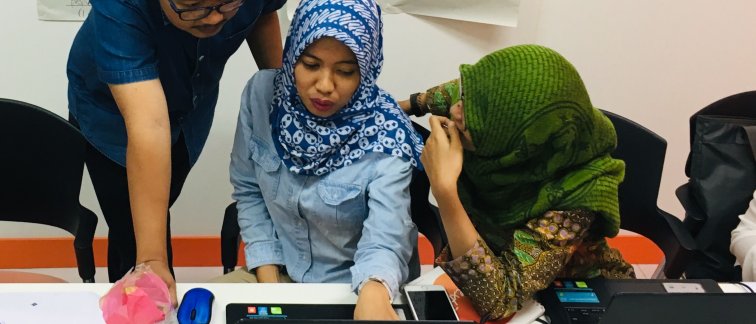In Guinea Bissau, one of the poorest and most unstable countries in the world, we studied the implementation of a local approach to combat cholera epidemics by promoting handwashing, modern water storage pots and even the use of lime juice. Using the same analytical framework, we investigated in the Netherlands how health promotion interventions can be better implemented by municipality health services (GGD). In both countries, it became clear that the interventions promoted by researchers contained all kinds of implicit assumptions about the local conditions in which they should be implemented. In both countries, these assumptions turned out to be problematic, because the organizations who were supposed to realize the interventions and the conditions in which they worked were very diverse. Clarifying these assumptions helped those involved to understand how interventions could be implemented and how successful practices could be realized in diverse local circumstances.
By examining implementation processes in diverse circumstances, we gain insight into the mechanisms, dynamics and structures that shape implementation. A key feature of our research strategy is that we focus on how successful implementation processes come about in local circumstances. We are thus trying to learn more about how success is realized.
Some examples of implementation research led by researchers involved in AMCIS
In Nigeria, Jordan and Cameroon, we are working on the implementation of evidence-based interventions in the field of sexual and reproductive health. We started by engaging key stakeholders in setting research priorities. Together with NGO staff, women's groups and the local government, we determined which health issues required interventions. We then assessed the international and local evidence available. In so-called "deliberative dialogues" we discussed this evidence with potential key users, such as policymakers and healthcare workers. Next, we jointly developed implementation strategies. As a final step, we mapped the impact of this approach, by using Contribution Mapping.
We also study implementation processes in Indonesia, one of the largest and most diverse countries in the world. Because of this diversity, and the fact that the population is spread out over 13,000 inhabited islands, this country functions as a natural experiment for implementation strategies. In Indonesia we analyze, among other things, the implementation of national health insurance, strategies to combat counterfeit medicines, and the implementation of Maternity Waiting Homes.
Author: APH researcher Maarten Kok, Health governance researcher, incl. knowledge translation.

